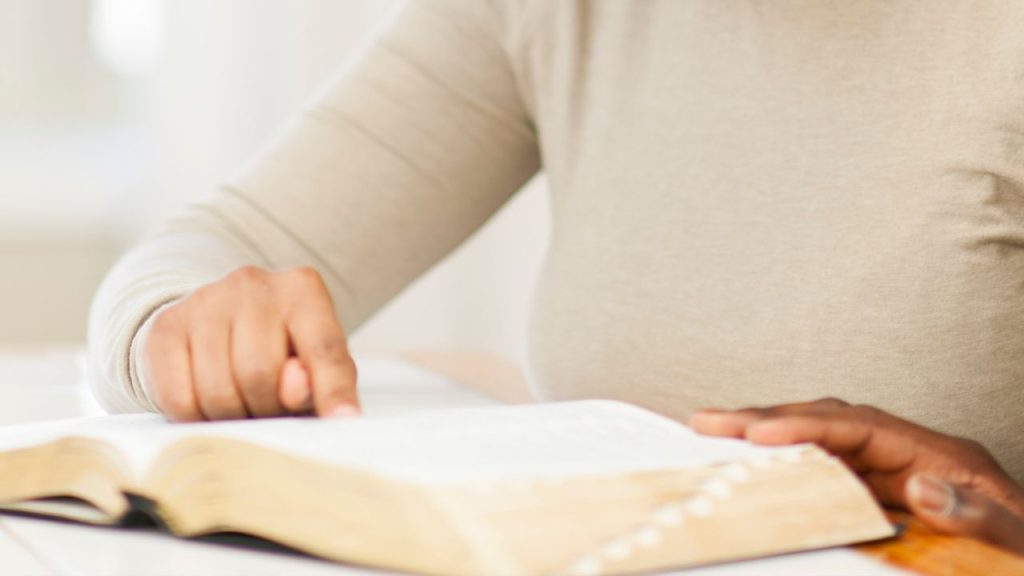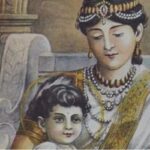How a family Bible ended up at the Smithsonian

By Jamie Asaraf
Hundreds of tourists visit each of the Smithsonian museums every day in Washington, D.C., and each museum holds artifacts with stories to tell and carry on. One of those stories, in particular, is about a Bible. A Bible that dates back to 1869 and now sits at the National Museum of African American History and Culture. This Bible dates back to the era of enslavement which is what makes it particularly special.
According to media reports, the Bible was discovered by the Diggs family in the 1980s. Carlotta Diggs had been rummaging through some boxes that were set to be donated to charity when she suddenly came across an old Bible. It looked like any ordinary Bible to Carlotta until she landed on a couple of pages that were meant for family records.
“[The dates weren’t] from the 1950s or 1940s,” Carlotta tells the L.A. Times. “These are slavery dates. It occurred to me that this is a very, very important book. “
Carlotta showed it to her mother-in-law, Natalie Diggs. Natalie had opened the book to the pages of records and discovered the names of her father, siblings, and other family members.
Natalie was surprised because she had been “so close” to getting rid of the religious book.
After flipping through the pages, Natalie realized that the Bible belonged to her grandfather, Richard Collins. She spent the next two decades building her family tree based on the Bible until her death in 2005.
But the Bible’s journey didn’t end there. Richard Diggs, Natalie’s only son, took up the mantle and began to look into his family’s past, researching more about Collins, his great grandfather.
Richard discovered that Collins had a grandmother that lived as a free woman in Georgia until she and her daughter were kidnapped and sold into slavery in Alabama in 1818. Collins was born in 1844 into slavery. Richard traced his great-grandfather’s notes in the Bible and it showed that Collins escaped slavery, enlisted in the Union army, and then reunited with his mother and grandmother in Alabama when the Confederacy fell.
Collins eventually ended up in Southern California where he died in 1918. Richard pieced together a fair amount of his family tree, which is something that historians consider to be a rare feat.
Because they were so heavily oppressed, illiteracy among enslaved people was very common. For the Diggs family to have such valuable information and for it to have been preserved and passed on is considered to be an incredible and unique accomplishment.
By 2012, seven years after Natalie’s death, the entire Diggs family had found out almost everything they could about their family tree. Around that time, Denise Diggs, Richard’s sister, saw a segment on PBS News about the Smithsonian Institution’s newest museum asking for African-American artifacts for display.
Richard flew from L.A. to Washington, D.C., where a Smithsonian curator confirmed that the book was indeed printed in 1869. A year later, the family received a letter from the Smithsonian asking to put their family Bible on display.
The request proved to be difficult for Richard. He recalls thinking, once I sign this, that’s it. But he decided to donate his great-grandfather’s Bible because “it was the right thing to do,” and he wanted the whole world to understand and know his family’s history.
The Bible was put on display at the Smithsonian National Museum of African American History and Culture in 2016 at its inception. After six years, Denise finally got to see it on display.
It was worth the wait.
As hundreds of tourists walked by, Denise took her time observing the Bible on display, reading and re-reading the description.
“As long as people talk about you after you pass, you never really leave,” Denise says.
Now that her ancestor’s Bible is on display in one of America’s most revered museums, she adds, “it feels like he’s going to live on, and so will our story.”



